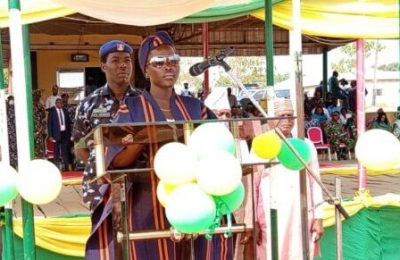
Borno is grappling with a high number of out-of-school children, particularly within Internally Displaced Persons (IDP) camps, as the state continues its recovery from over a decade of Boko Haram insurgency.
The UNICEF Chief of Field Office, Borno State, Joseph Senesie, made this known on Friday while commemorating the 2024 World Education Day in Maiduguri.

According to him, an estimated 700,000 children in the state are currently out of school, with over half of all displaced children in the Northeast region facing the same challenge.
The theme for this year’s celebration, “Artificial Intelligence (AI) and Education,” highlights the potential of AI to enhance education in the North East region.
Senesie explained that AI can significantly improve the learning environment by enabling teachers to embrace innovative methods and enhance the quality of education.
“A comprehensive assessment is crucial to determine the precise number of out-of-school children across the state,” Senesie stressed.”This will facilitate effective resource allocation and informed planning.”
He further explained that World Education Day serves as a crucial platform for stakeholders, including government, UN agencies, and civil society organisations, to collectively reflect on the prevailing education situation in Borno State and collaborate on solutions.
UNICEF has introduced the Nigerian Learning Passport, a digital learning platform that provides learners and teachers with access to digitized educational materials.
“Artificial intelligence offers immense potential to revolutionise education,” Senesie concluded. “UNICEF is actively exploring avenues to harness the power of technology to enhance learning outcomes in the North East.”
UNICEF remains committed to collaborating with the Borno State government to improve the quality of education and reduce the number of out-of-school children.
Unicef Education Manager in Maiduguri Field Office, Caroline Mwai, said that “there is a need for an assessment to determine the exact number of out-of-school children across the North East region, to effectively unlock resources and plan accordingly”.








